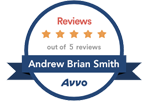Nowhere is completely safe. Wherever a person can go, a person can get injured. That being said, there are ways to mitigate risks. It is up to property owners to take these steps to keep visitors safe, and when they fail to do so they can be held accountable. Common hazards are often easy to fix or easy to warn about, and a failure to do so shows that the property manager doesn’t care about those visiting their premises.
While most premises liability injuries are relatively minor and their victims see full recoveries, accidents can also lead to severe to catastrophic injuries, and sometimes even death. This potential for severity is why every case is important, no matter how small: holding property owners accountable is a step towards ensuring they keep their premises safe and hazard-free.
What Counts as Premises Liability?
While the alternate name for the practice is “Slip and Fall Accidents,” premises liability refers to any hazard present on a property. This can be a broken stair, an exposed outlet, an unsalted icy walkway, the presence of toxic mold, or any number of things. If you required medical attention after visiting the property, chances are you have a case under premises liability.
Some common premises liabilities include:
- Slippery floors
- Loose floorboards
- Lead paint
- Black mold
- Asbestos
- Exposed wires
- Lack of warning signs around hazards
If you were injured by something on the property that could have been fixed or removed or about which you could have been warned, you can file a premises liability claim. These injuries can range from broken bones to traumatic brain injuries.
Common injuries caused by premises liabilities are:
- Broken/fractured bones
- Electrocution
- Concussions
- Brain injuries
- Exposure to toxic materials
What if the Accident was My Fault?
Determining fault is a key part of any personal injury case. It is important in figuring out what insurance companies owe, how much you are entitled to, and how exactly the accident occurred. In both New York and New Jersey, claimants can be found to be partially at fault and still receive a portion of their compensation. In New York, claimants can be over 50% at fault and still receive a percentage of their compensation. This is not the case in New Jersey, where you lose the right to your damages if you are found to be over 50% at fault.
So how does shared fault work in a premises liability case? It can be easy to see how multiple parties can be to blame for a car accident, but it can be more difficult with a slip and fall. An example of shared fault might be if a person was running up a flight of stairs and tripped on a loose corner of carpet. While the person shouldn’t have been going up the stairs in such a reckless manner, the stairs should also not have a loose corner of carpet top be tripped on. The person may be found to be 25% at fault in this scenario, and would receive 75% of their total compensation awarded.
What Damages are Available for Premises Liabilities Victims?
When you are involved in a premises liability accident, you can be impacted in a variety of ways. When these impacts negatively affect your life in a significant manner, you can file a claim and request compensation for the damages caused by the accident.
Damages in personal injury cases can be categorized into three main groups depending on the type of impact it had on your life. There are physical injuries, mental/emotional damages, and property damage.
Physical Injuries
Damages for physical injuries cover the costs involved in being injured. This includes out of pocket medical expenses, rehabilitation costs, and wages that were lost if you were unable to work while recovering. If your injuries are permanent, such as traumatic brain injuries, spinal injuries, or wrongful death, you could be eligible to receive compensation for the years of lost income that you are now unable to earn. Your compensation will be proportionate to the severity of your injury.
Mental/Emotional Damages
Mental and emotional damages are often more difficult to quantify in premises liabilities cases than physical damages such as injuries and property damage. Emotional impacts, such as trauma and anxiety, are proven as damages when the victim can show that their life has been negatively affected. This can be in the victim’s relationships, ability to work, and enjoyment of life, and is supported by testimony from family, friends, and mental health professionals.
Property Damages
Property damages are less common in premises liabilities cases than car accidents or bike accidents, but still happen. Property damage occurs when an item of value is broken or damaged in the accident and requires repairs, replacement, or refund. In-car accidents, this is often the car or items in the car. In premises liabilities cases, it is anything of yours that was broken, which likely means it was on your person. An example of this would be if you were carrying an expensive vase and tripped on an uneven floorboard. If the vase could be repaired, the property manager could be responsible for paying for its repair. If it was irreparably broken, they might pay for a replacement. If it was one of a kind, they might refund you.
Filing a Premises Liability Claim
Filing a premises liability claim in New Jersey is slightly more rushed than filing one in New York, with the statute of limitations to file a claim being two years in New Jersey and three years in New York. If you are thinking of filing a claim, it is important that you know your case is solid before you file.
The Summit, New Jersey attorneys of Smith & Schwartzstein are here to help you make sure your case is airtight. We provide support and defense for clients across Union County, Northern New Jersey, and New York in a wide array of personal injury cases, and we are interested in hearing about your situation. If you or a loved one has been injured in a premises liability accident, please contact us to schedule a free consultation. We will help you explore your options and make a decision on how to proceed.






